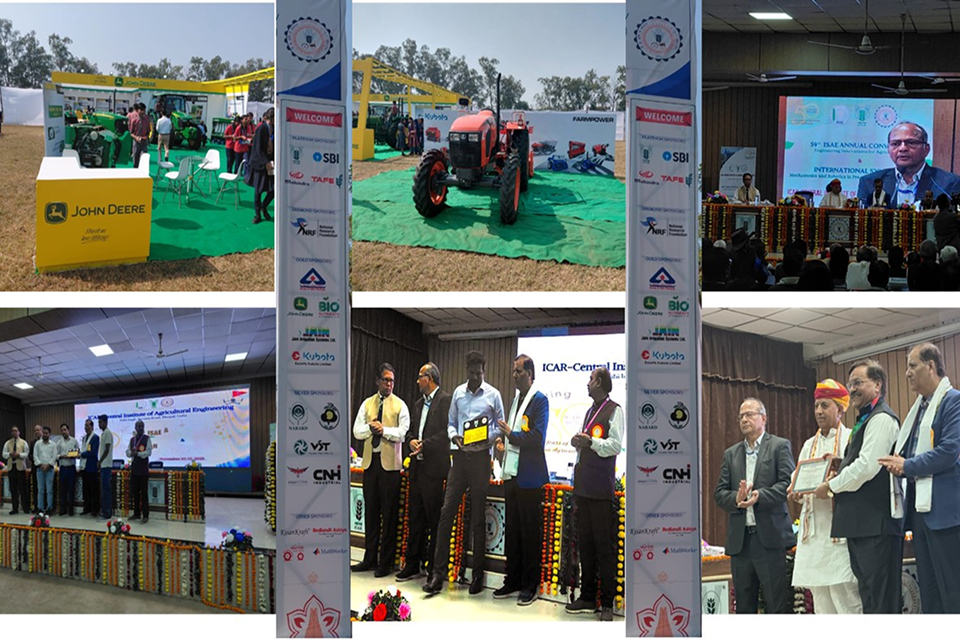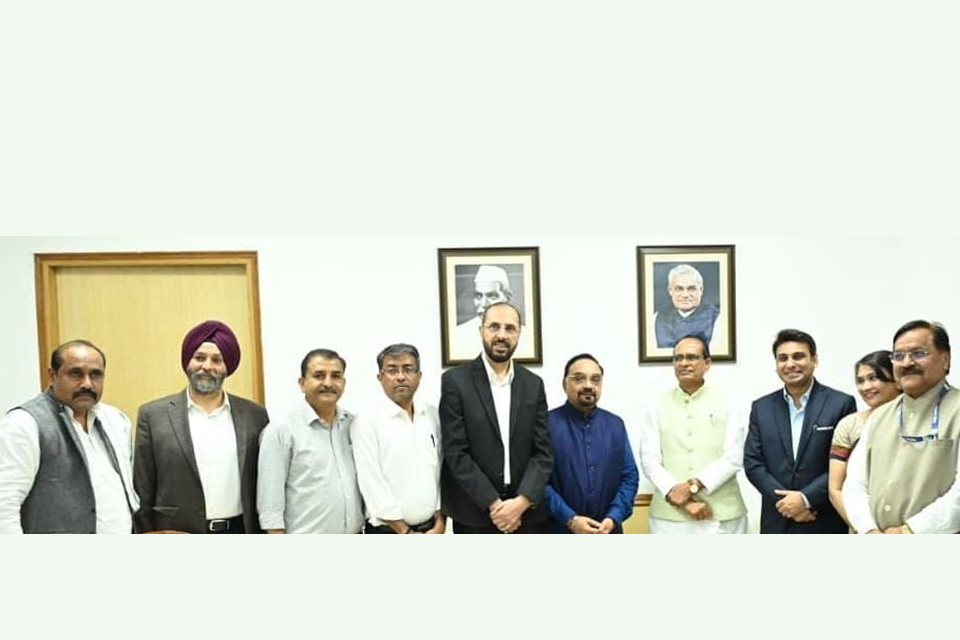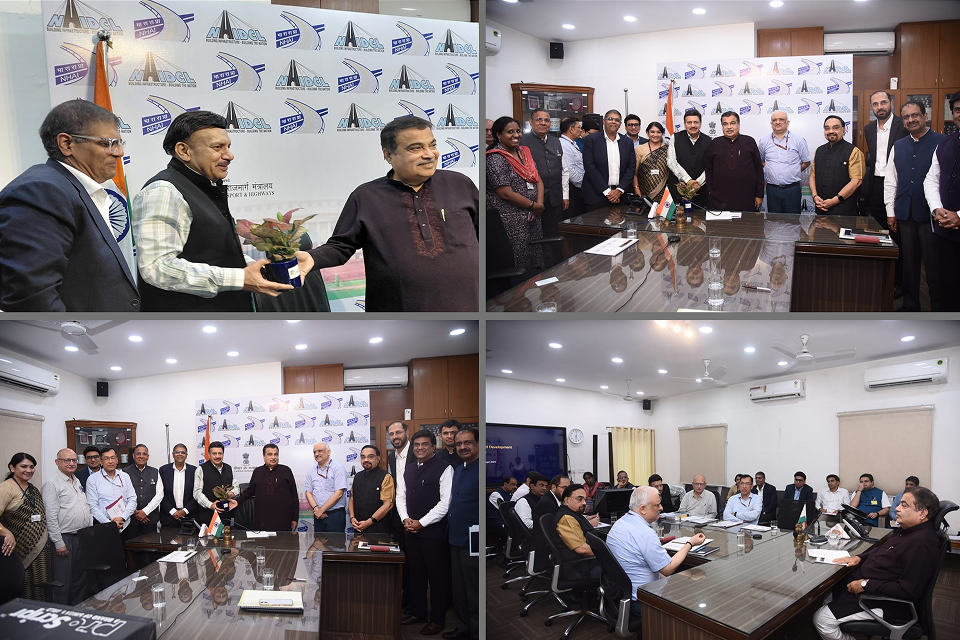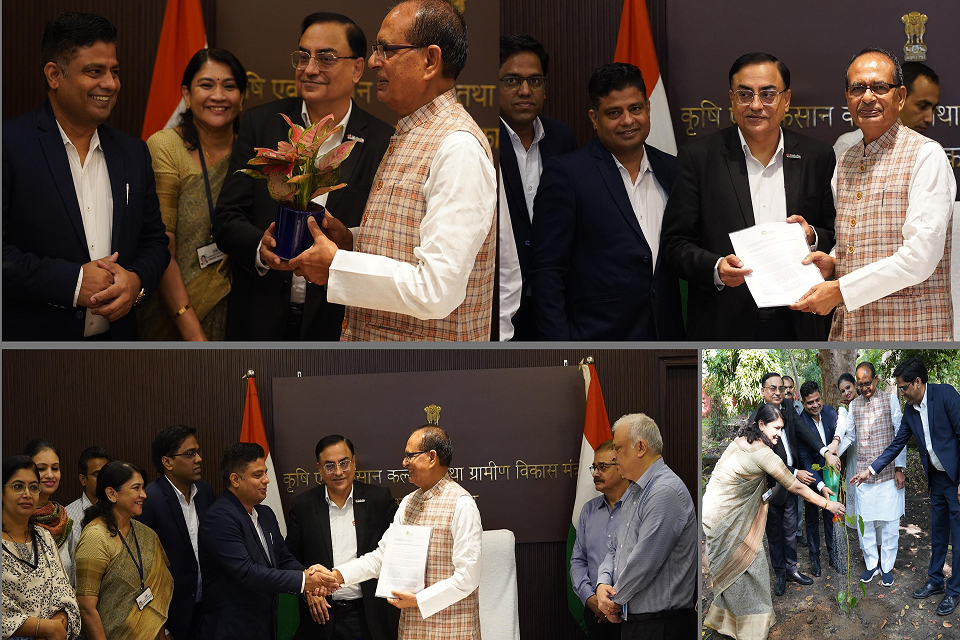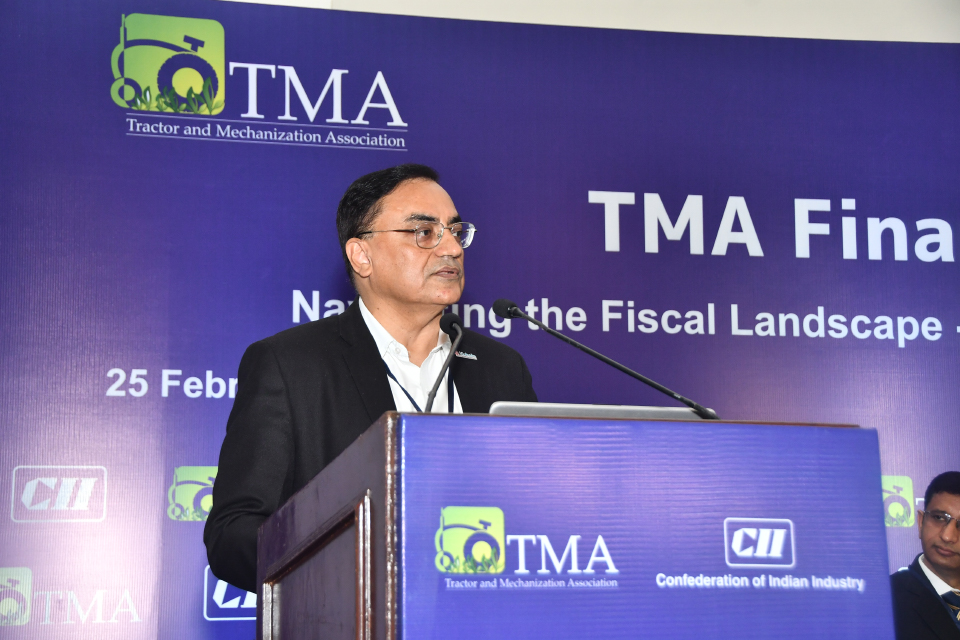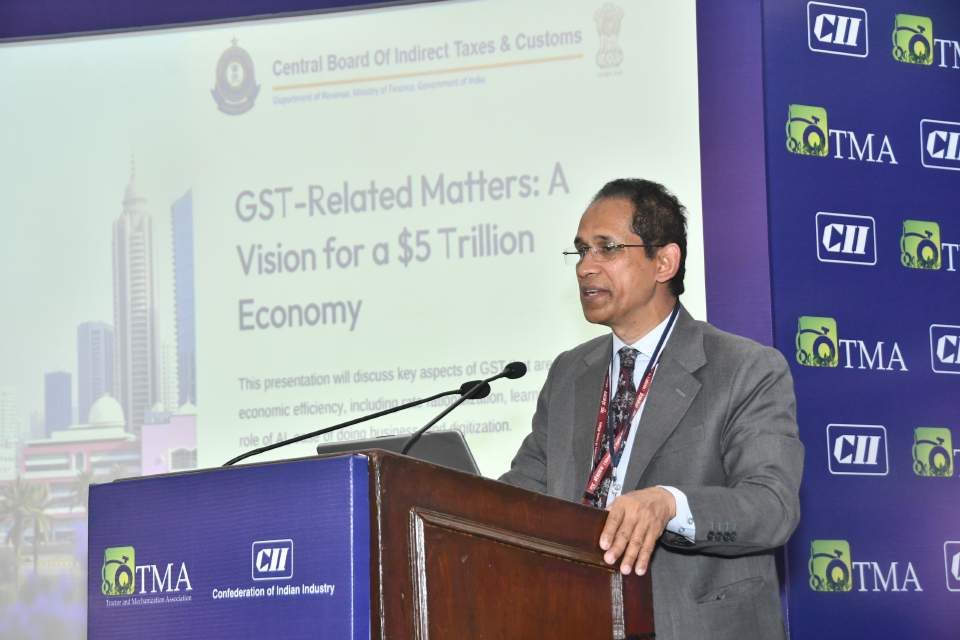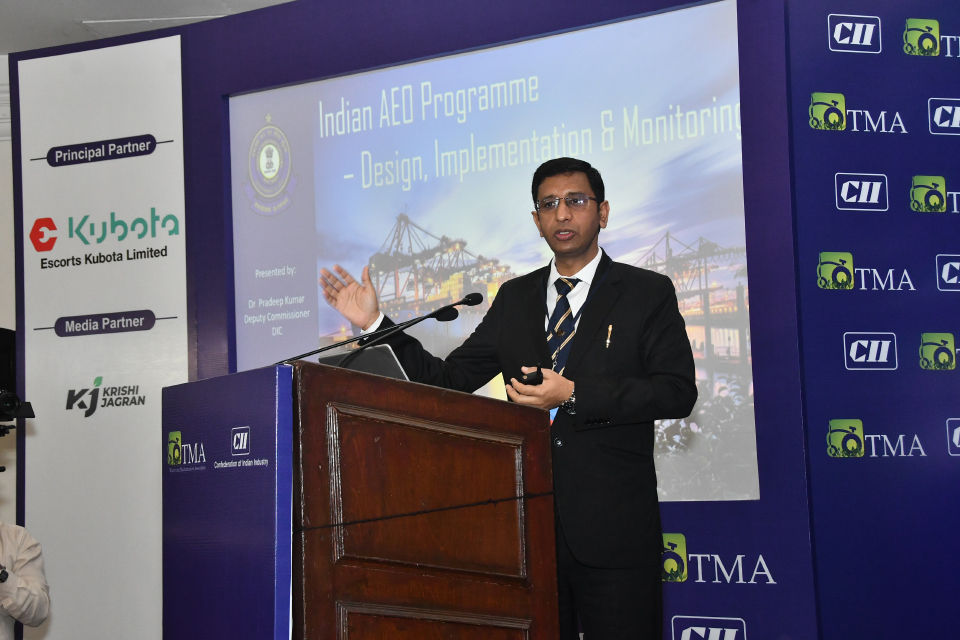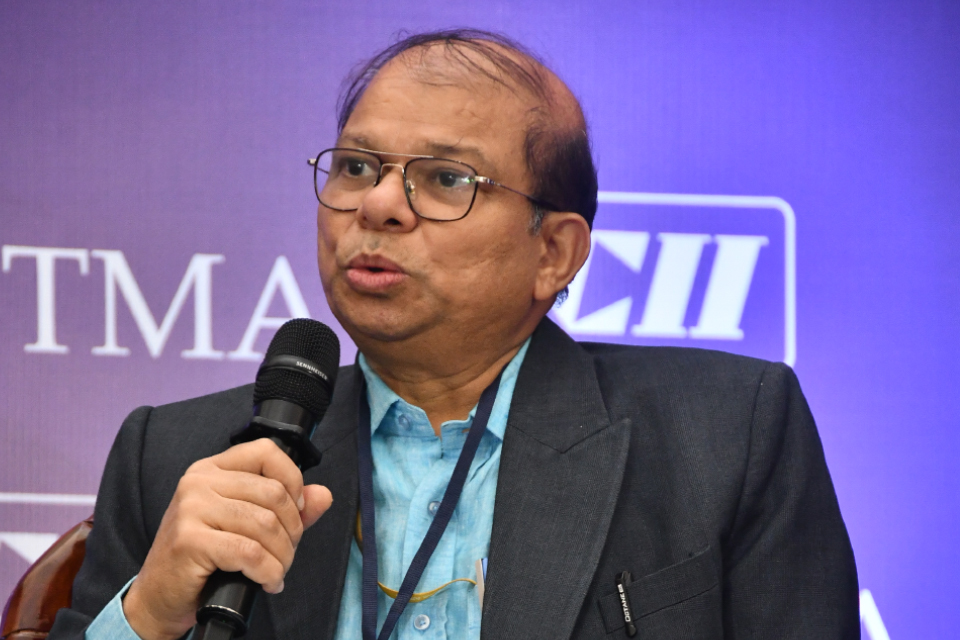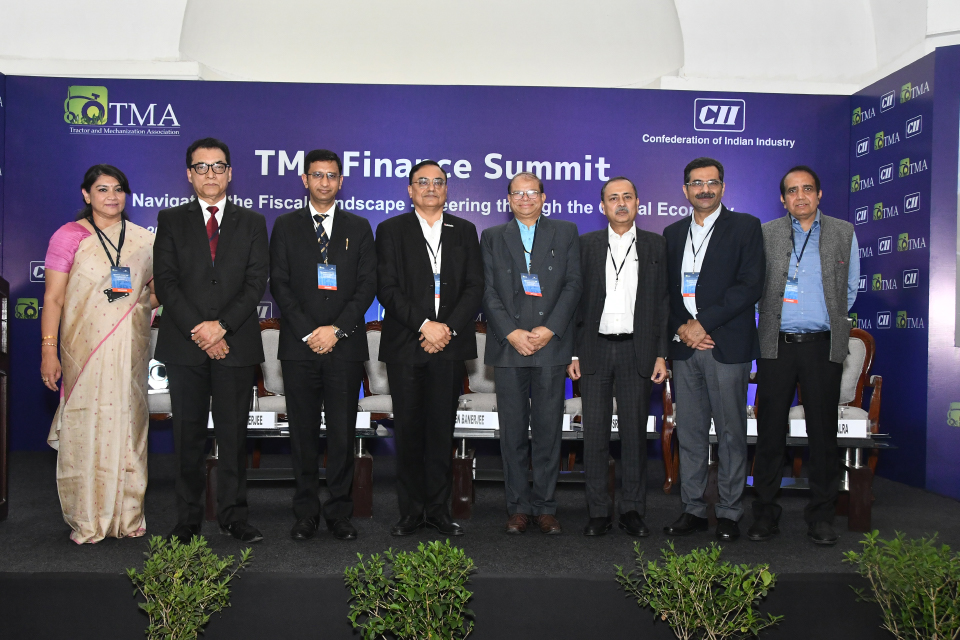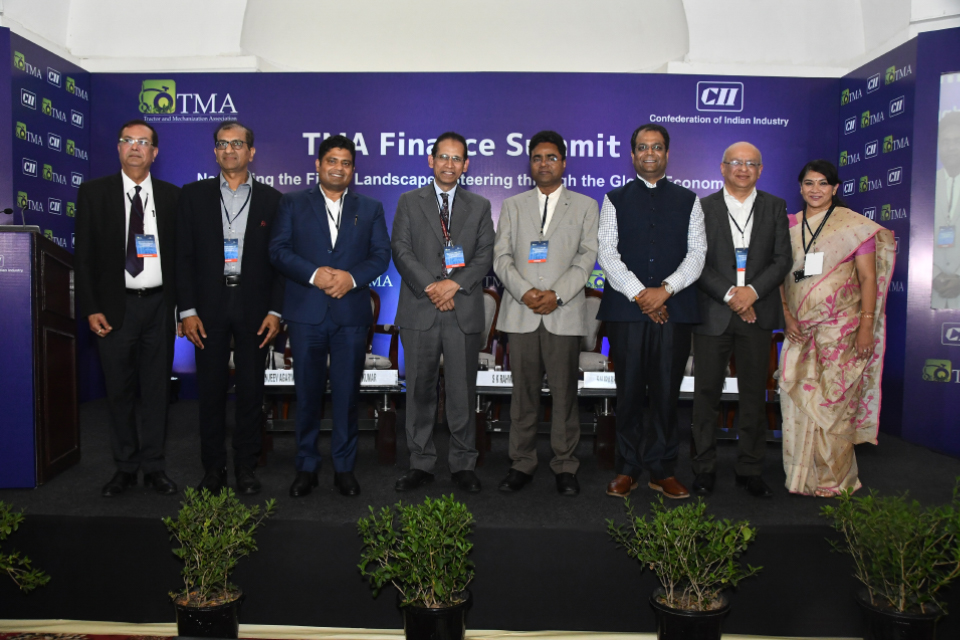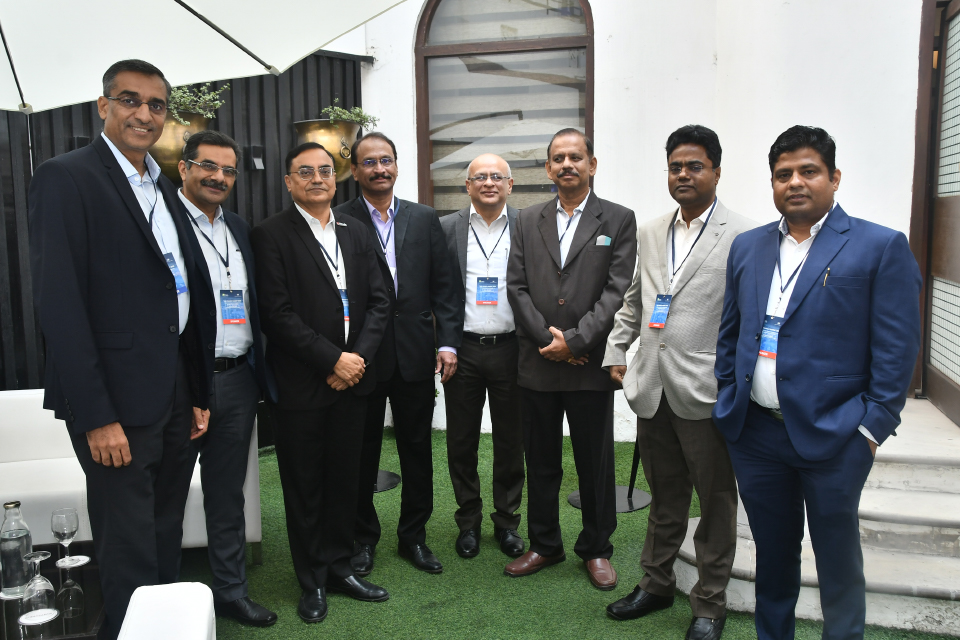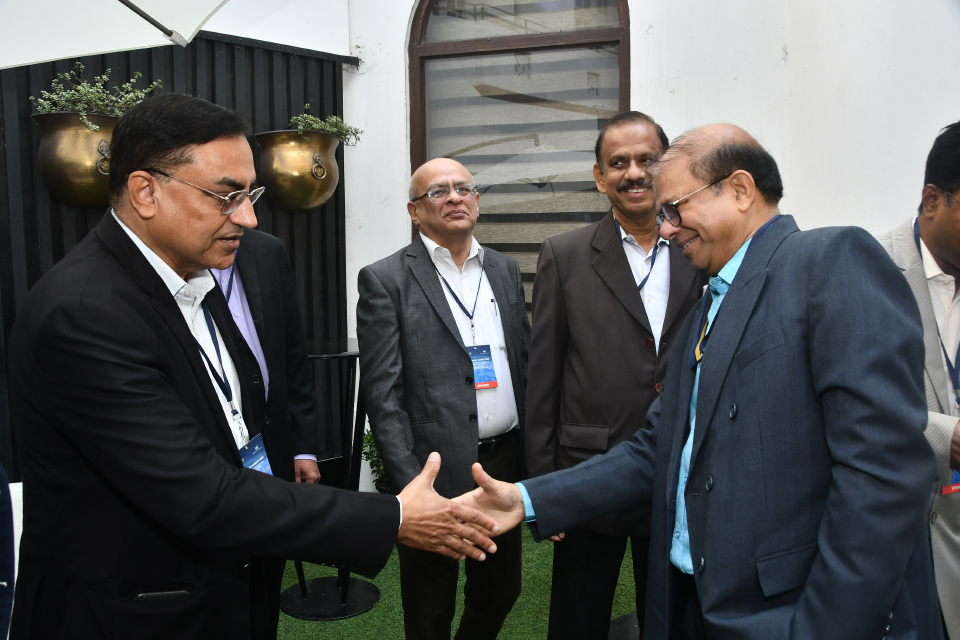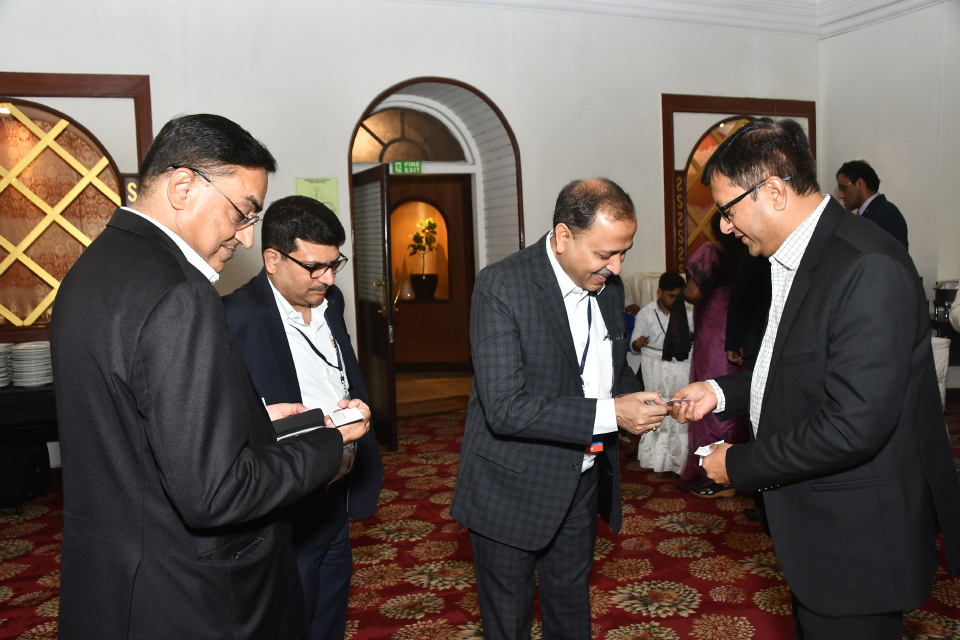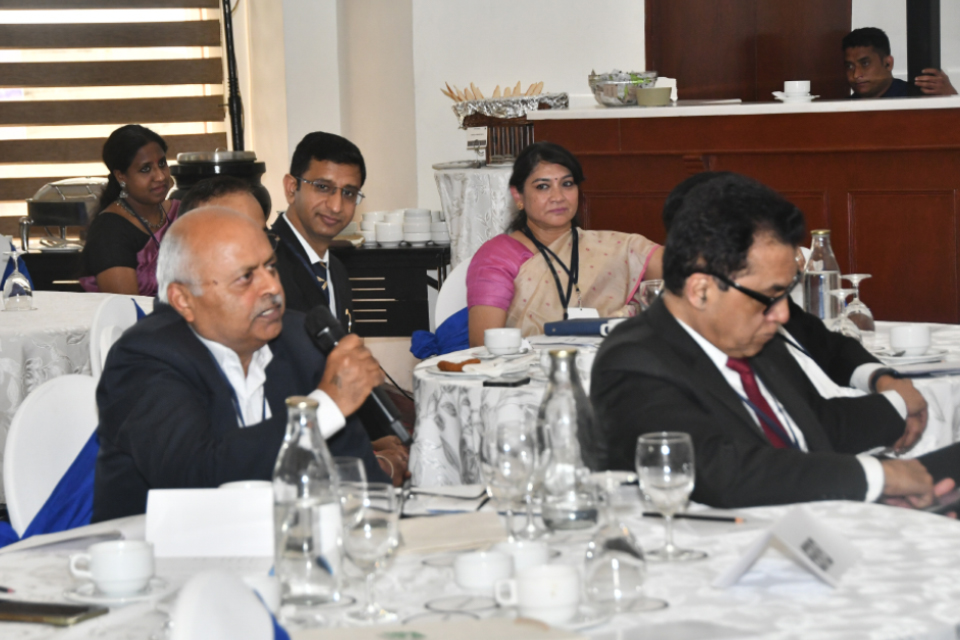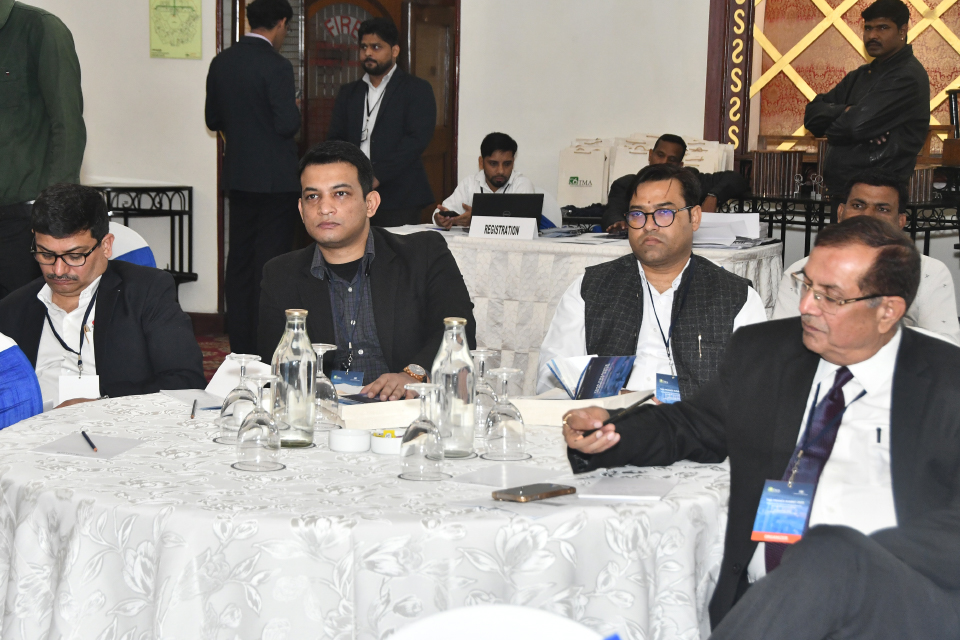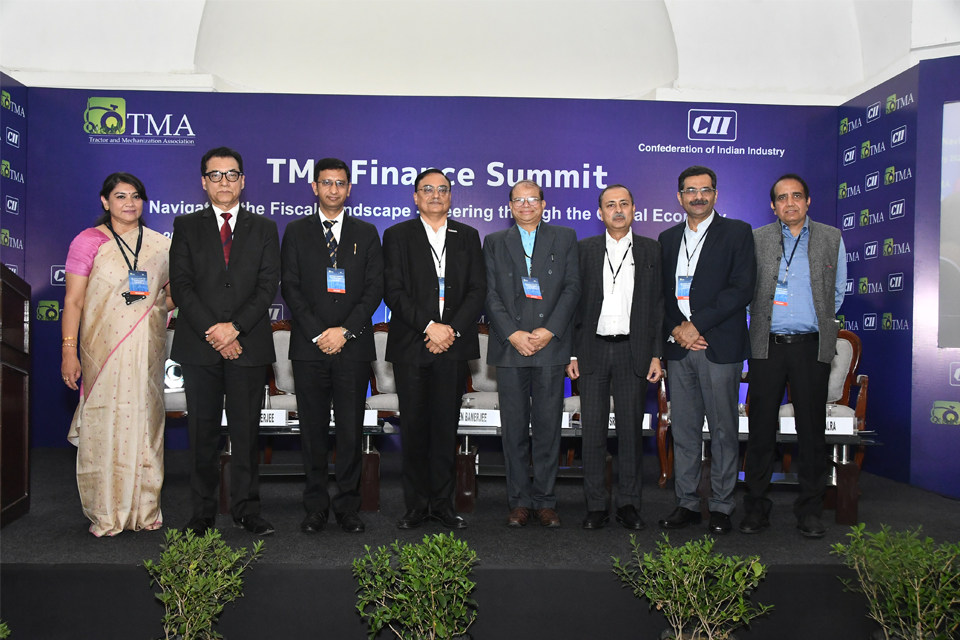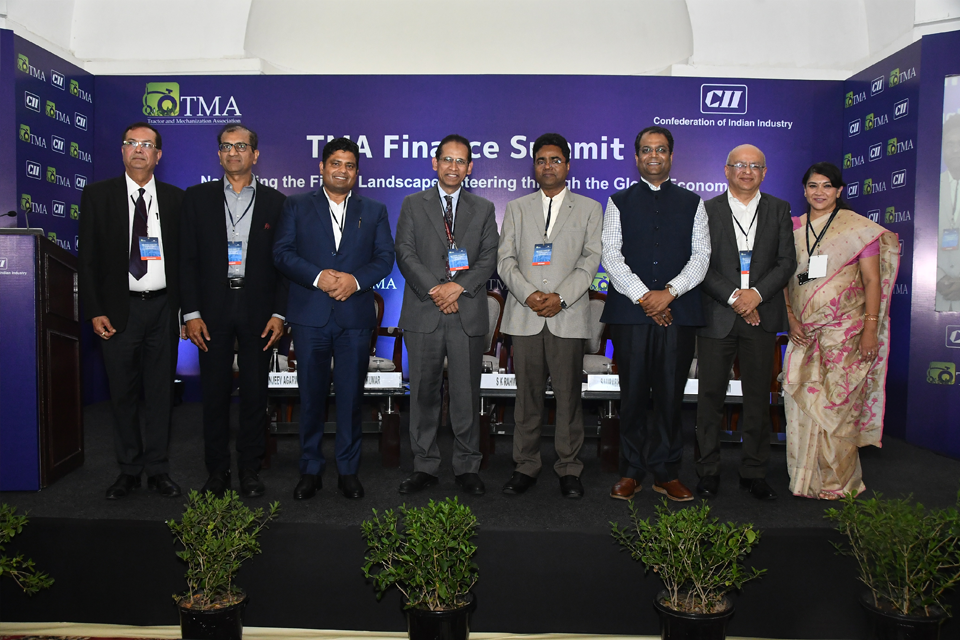Mechanization Overview India
An exclusive interview of MrT R Kesavan, President TMA, discussing the current and future operations of the association. In this wide-ranging interview with Chief Editor of AGRI MECH, Mr Kesavan articulates the challenges and opportunities before the association as it continues reinforcing and reinventing itself, in India and in the world.
The Future of Agricultural Mechanization will be Data Driven
AM: How does TMA contribute to the development of the tractor and agricultural machinery industry and economy of India?
TRK:One might be aware that earlier, we were the Tractor Manufacturers Association. When tractor manufacturing became the driving force for catering to Indian farmers needs it was felt that there was need to promote and diffuse knowledge on the entire Farm Mechanization, Agricultural Developments, Production Technologies and conservation agriculture to name a few.TMA engages in several capacity building initiatives by working in close collaboration with regulators, academia, other associations and of course the industry. We work with Central Government on recommending new and appropriate technologies, by roping in the international expertise. We work with other Ministries on Emission norms, energy efficiency, accelerated testing facilities and BIS standards appropriate for Local and Global needs. We work very closely with state governments supporting and guiding them through their initiatives and ideas. Our initiatives have enlarged the scope of mechanization. We reach out to Agriculture Universities for collaborating on the various applications of tractors with matching implements that increase productivity in agriculture. Being a part of TMA provides focus and structured approach to the objective of the members.
TMA works to create and sustain an environment conducive to the growth of the tractor and farm mechanization industry towards addressing the needs of farming community in India, partnering industry and government alike through advisory and consultative process. India is the largest manufacturer of tractors in the world. We are also the largest exporters of tractors in the world by volume.
AM: Why is it important to be a member of TMA?
TRK:TMA contributes towards conducive regulatory and industry policy framework for creating road maps well in advance for sustainable and viable agriculture sector policies. The members get the opportunity to be part of the collective and unanimous voice of Industry. TMA strives and drives for expanding global market opportunities. We work as an extended arm of the Ministry of Agriculture, not only at the Centre but also with the states.
TMA member companiesmake substantial contribution to Make in India. They make Indian manufacturing “future ready”.We also ensure appropriate implementation of the recommendations and suggestions.The members work together keeping the best interest of thefarmers, thecountry and the entire value chain in mind. This is recognized by the government, not just at the center but also in the states. I am proud to say that this is the contribution of each member of TMA. The members see value in this constructive &collaborative effort. Therefore, this answers your question as to why it is important to be a member of TMA.
AM: How does TMA help the agricultural mechanization industry pursue “green” and sustainable growth of the industry?
TRK:The tractor industry is working to promote mechanization that strives to reduce the use of all inputs whether it is seeds, fertilisers, pesticides or much scarce water. We also keep fuel efficiency improvement sharply in focus given the environmental considerations. The policies and recommendations we have suggested are always geared to enable the companies to showcase to farmers productive opportunities without compromising green economy. All the TMA manufacturing are green facilities without contaminating the nature.
AM: The mechanization rate in the local agricultural sector is steadilyincreasing. How you will see the market in upcoming decade?
TRK:The need to reduce input cost to farmers as described earlier is the keystone of farm mechanization.Rising wagesand non-availability of labour dictates mechanization. Easy credit lending to farmers will boost the mechanization availability for a shared farm- economy. There is also potential for existing machines by increasing utilization and by creating marketplace driven equipment rentals. Given the small and scattered land holding patterns in Indian agriculture, the Mechanization-service market is bound to increase in the years to come. The Central Government relaxing the norms for service sector, post COVID,will enhance both service platforms and adoption of farm mechanization, which in turn could increase agriculture GDP growth close to 5% and increase farmers retained income.
AM:What are the main strengths and significant assets of today's Asian agricultural machinery industry? What, in your opinion, are its potential weaknesses and if weaknesses thereby, what are the remedies?
TRK:Mechanization has had a revolutionary impact on the development of agriculture and the improvement of farmer’s livelihood in the Asia-Pacific region. Asia has become a big player in agricultural machinery manufacturing and India is the leading player both locally and globally.This development momentum is expected to accrue even more growth potential in the future. Agricultural machinery in Asia is characterized by diverse types of testing standards and facilities as a result of huge difference in topography, scale of farming and different levels of economic development across the region.
There is a need to homogenize mechanization agriculture standards to benefit volumes and drive down costs. Promoting agricultural mechanization and enhancing its contribution to reduction of input cost of agriculture and ensuring that safety standards are maintained is a challenge and success driver that most developing countries in the region need to address. This need to be addressed in unison and we believe India can be the driving force.
AM:When we look at tractor manufacturers worldwide,are Indianmanufacturers in a leading role or more in a trailing role?
TRK:India manufacturesthe largest volume of quality agricultural mechanization equipment at the most affordable cost. We need to appreciate that our productsendure three times more usage hours per year and is expected to serve over two decades. This enabled us to become exporters to the most developed and to least developed nations of the world. Durability & technology at the least cost.Considering our strength India has huge potential in the global market.
Manufacturing in India by foreign players will give impetus to FDIs and Make in India objective of the Government of India. We have foreign manufacturers as TMA members. This makes a perfect blend of Indian and foreign companies working in sync with each other. The technicalities and regulations observed in the foreign countries for tractors also creates awareness and is good for knowledge
AM: How do you see the future for agricultural mechanization in Asia & worldwide? Will there be biggermachines or smaller but more machines on the fields?
TRK:With the involvement of digital technology, the future of agricultural mechanization will be data driven and focused thereby cutting down wastages. Farmers will have access to quality information and tools that makes farming pocket friendly.Food production will becost effective and in a sustainable mode. Farmer groups having access to critical data will allow them to make informed decisions,more profits and growing global access.
Today, we see sophisticated technologies such as temperature and moisture sensors, robots, GPS technology and precision agriculture amongst others being used to enhance the productivity and profitability of farmers across continents. The challenges impeding the maximum impact of these new technologies, is the adaption by farmers in developing countries. This must be addressed to allow for the most productive farming future.By doing this, we are adding value to the ecosystem and enabling the sustainability of mechanized agriculture
AM:How does the Ministry of Agriculture provide support for upcoming mechanization plans?
TRK:The Ministry of Agriculture has been extremely supportive during these unprecedented times. MoA has laid emphasis by providing financial assistance to farmers and other target groups for purchase of different kinds of Farm Equipment, demonstration of new equipment among farmers for the spread of new technologies,repair and maintenance, management of agricultural machinery and quality inputs through testing and evaluation besides institutional credit and fiscal measures. The FMTTIS- training and testing established by the government have played a vital role in promoting agricultural mechanization.
AM:What factors influence the best size of machinery?
TRK:Machinery that can work in small farms and provide the best input cost saving to farmers should be categorized as the best. The farm or machine size can vary (or can be swarm farming) but the concept does not.
AM:What do you say about custom hiring?What will be the impact of custom hiring on manufacturers?
TRK:The main objective of custom hiring centersisto make available to small and marginal farmers the hiring services for operation ofvarious farm machinery and equipment. These offset the adverse economies of scale due to high cost of individual ownership. Thisalso brings about improvement in mechanization in places with low farm power availability and expand mechanized activities during cropping seasons in large areas especially in small and marginal holdings. This also has provision for hiring services for various high value crop specific machines applied for different operations.
The Custom Hiring model enables new machines to be used at their maximum capacity and enables farmers to gain access to latest technology. They would otherwise not be able to afford.There is a need to promote hiring by supporting the user farmers with DBT incentives rather than one time subsidizing the CHC’s which is not sustainable or long term viable. Need to create a pull than a push.
AM:SinceIndian Tractor Industry is one of the largest manufacturers of Tractors in the world; tell us more about expansion plans for your member companies?
TRK:The mechanization industry is expected to growabout 5% CAGR on a long term averageand will be in line with the Agriculture GDP growth – they are intertwined and related. There is definitely a huge of scope for expanding.Local to global which needstrategic plans and operations must fast tracked to enter global markets with the help of GoI, before someone else captures it
AM: India is emerging as a major importer and exporter of farm machinery and equipment. But the users are reportedly facing the problem of after-sales services by overseas suppliers. Do you suggest any long-term solution to resolve such issues being faced by emerging markets?
TRK:We are more an exporter than importer of farm mechanization equipment by volume of value. Imports are insignificant and we are fore-runners of Make in India. Even before Autos were established in India we had close to ten tractor manufacturersindigenously producing. We seem to forget about this.
In Mechanization service is the key to sales. It is observed that58% of tractor owners receive offers from their dealers to service their tractor at the owner’s premises, while approximately 41% of customers select this service. Additionally, more than 34%of customers opt for the doorstep service had a better-than-expected overall service experience than those who would have liked but were not offered the service (20%).
AM:Since many regional & foreign players are stepping in farm machinery sector of India, do you see this as competitive threat to growth opportunity?
TRK:Not at all. Manufacturing in India by foreign players will give impetus to FDIsand Make in India objective of the Government of India. We have foreign manufacturers as TMA members. This makes a perfect blend of Indian and foreign companies working in sync with each other. The technicalities and regulations observed in the foreign countries for tractors also creates awareness and is good for knowledge building.
AM: Do you want to say anything to our readers?
TRK:Agriculture is critical to a large and populous nation like India. Self-Reliance (Atmanirbhar) is the key for food security. Mechanization is the key to achieve this.

